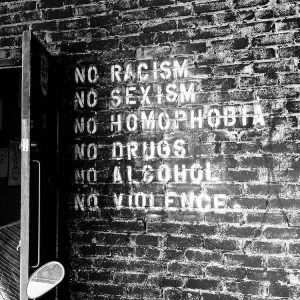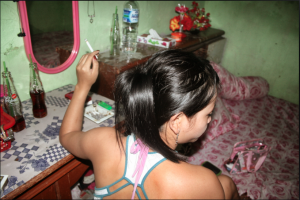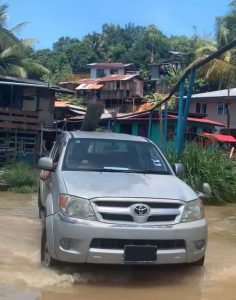Ucapan ini diberikan oleh saudari Tasmida Siddek semasa forum Projek Dialog ‘Mencari Roh-ingya’ di Arts For Grab, 3 April 2016.
 “A very good morning to all of you present here. Thank you very much for giving me this opportunity to voice some of the Rohingya issues. I’m Tasmida binti Siddik Ahmad from Arkhan, Myanmar and belong to the ethnic Rohingya.
Today, in this occasion, I would like to tell briefly about the Rohingya situation, their sufferings and the challenges they are facing currently.
The Rohingyas are an ethnic minority in the majority Buddhist Myanmar. There are about 1.3 million of them in the country. Over the last 3 and a half years and 10 per cent of them were forced to flee into the neighbouring countries like Indonesia, Thailand, Bangladesh and Malaysia. These people risking everything for a chance at safety, many dying at sea or overcrowded detention sites and an estimated 140,000 people were internally displaced within Arkhan Myanmar.
They have lived in the country for generations, some for hundreds of years. The government has decided to persecute them and has beaten them with impunity for the last 3 and a half years, and put them into camps and told them that they have to call themselves Bengali or they will be detained and otherwise basically leave all humanitarian access out, so that they cannot even get food or medical care or even go to school.
According to the 1992 Myanmar citizenship law, all the rights of the Rohingyas are denied i.e. their rights to a nationality, their freedom of movement, access to education and the law allows arbitrary confiscation of property. Today, they are stateless without the proper required identification documents. They have no chance at being a citizen anywhere.
For some families, their only form of identification, a household registration card, was taken away by the authorities. This meant no identification and no rights. The only option for that family was to leave the country.
My dear ladies and gentlemen who are present in this occasion today, you can imagine this – if you are denied an identity or a place to call home, you rights to study, work, travel, marry and practice your religion don’t exist because you belong nowhere.
If you are not given any way to prove who you are or where you are from, which restricts your ability to gain full citizenship status, wherever you try to find refuge you are locked up in detention because of who you are. This is the life of a Rohingya person.
After all, let me tell you my biography shortly. I left Myanmar in 2013. The reason I had to leave my own country was that I was a humanitarian with an NGO named AGF and AMI in Arkhan.
It was in 2012 that the riots happened between the Rohingya and Buddhist people. At that time, I was in Ptang Daw Township which lies at the border of Bangladesh, attending to my duties.
During this violence, all the NGOs and agencies are closed for five months. And then they reopened. As soon as the NGOs opened I took leave and went to my home in Buthidaung. Then, after three days, I got an informal letter from the police in which they mentioned that “you were involved in the violence and you ran away from there” and came to our station to meet us.
After that evening, I went to the police station and they demanded 1 million Myanmar kyats for my freedom of arrest. Otherwise, I will be imprisoned for up to 10 years.
At that time, I have no way to escape but I paid them their demands. I thought that case would end there. The next day, other authorities from another department called Nasaka came to my house to charge me. Luckily, I was not there at that time. When I got the information that they arrived at my house from the neighbours, I knew they also wanted to demand for money the same way I had given money to the police.
At that time, I had not enough money to pay them and decided even if I paid their demand, the case would not end. If I go to my NGO work, I have to go to different villages as per my duty. Some villages have mostly Buddhist settlers where my life would not be safe.
That is why I left my home country and find refuge here in Malaysia. Here, I’m working with ICMC as a sexual and gender-based violence trainer and a woman representative of Rohingya Society in Malaysia (RSM).
Thank you, that is all from me.”
“A very good morning to all of you present here. Thank you very much for giving me this opportunity to voice some of the Rohingya issues. I’m Tasmida binti Siddik Ahmad from Arkhan, Myanmar and belong to the ethnic Rohingya.
Today, in this occasion, I would like to tell briefly about the Rohingya situation, their sufferings and the challenges they are facing currently.
The Rohingyas are an ethnic minority in the majority Buddhist Myanmar. There are about 1.3 million of them in the country. Over the last 3 and a half years and 10 per cent of them were forced to flee into the neighbouring countries like Indonesia, Thailand, Bangladesh and Malaysia. These people risking everything for a chance at safety, many dying at sea or overcrowded detention sites and an estimated 140,000 people were internally displaced within Arkhan Myanmar.
They have lived in the country for generations, some for hundreds of years. The government has decided to persecute them and has beaten them with impunity for the last 3 and a half years, and put them into camps and told them that they have to call themselves Bengali or they will be detained and otherwise basically leave all humanitarian access out, so that they cannot even get food or medical care or even go to school.
According to the 1992 Myanmar citizenship law, all the rights of the Rohingyas are denied i.e. their rights to a nationality, their freedom of movement, access to education and the law allows arbitrary confiscation of property. Today, they are stateless without the proper required identification documents. They have no chance at being a citizen anywhere.
For some families, their only form of identification, a household registration card, was taken away by the authorities. This meant no identification and no rights. The only option for that family was to leave the country.
My dear ladies and gentlemen who are present in this occasion today, you can imagine this – if you are denied an identity or a place to call home, you rights to study, work, travel, marry and practice your religion don’t exist because you belong nowhere.
If you are not given any way to prove who you are or where you are from, which restricts your ability to gain full citizenship status, wherever you try to find refuge you are locked up in detention because of who you are. This is the life of a Rohingya person.
After all, let me tell you my biography shortly. I left Myanmar in 2013. The reason I had to leave my own country was that I was a humanitarian with an NGO named AGF and AMI in Arkhan.
It was in 2012 that the riots happened between the Rohingya and Buddhist people. At that time, I was in Ptang Daw Township which lies at the border of Bangladesh, attending to my duties.
During this violence, all the NGOs and agencies are closed for five months. And then they reopened. As soon as the NGOs opened I took leave and went to my home in Buthidaung. Then, after three days, I got an informal letter from the police in which they mentioned that “you were involved in the violence and you ran away from there” and came to our station to meet us.
After that evening, I went to the police station and they demanded 1 million Myanmar kyats for my freedom of arrest. Otherwise, I will be imprisoned for up to 10 years.
At that time, I have no way to escape but I paid them their demands. I thought that case would end there. The next day, other authorities from another department called Nasaka came to my house to charge me. Luckily, I was not there at that time. When I got the information that they arrived at my house from the neighbours, I knew they also wanted to demand for money the same way I had given money to the police.
At that time, I had not enough money to pay them and decided even if I paid their demand, the case would not end. If I go to my NGO work, I have to go to different villages as per my duty. Some villages have mostly Buddhist settlers where my life would not be safe.
That is why I left my home country and find refuge here in Malaysia. Here, I’m working with ICMC as a sexual and gender-based violence trainer and a woman representative of Rohingya Society in Malaysia (RSM).
Thank you, that is all from me.”






